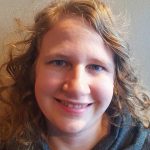
When I was planning my DLF attendance there were two events that most intrigued me. The first was the Liberal Arts Pre-Conference, which I wrote about yesterday. The second was seeing Safiya Noble’s keynote. Multiple colleagues went to her ACRL talk on search engine bias and reported to me, “It changed my life. It changed my teaching. It changed my practice.”
Critical theory has had a stronger voice at this conference than it has at most conferences I have attended. The keynote of the Liberal Arts Preconference (text of Chris Bourg’s portion and Cecily Walker’s portion) challenged neutrality in libraries and asked us as librarians to actively work in engrossment and empathy. Today, the DLF Forum itself began with a reminder from Musqueam elder Larry Grant that we hold this conference on the land of the First Nations peoples, who have contributed with their lives to the building of not only Canada, but the whole of the Western way of life and received little by way of recognition for it. If we are not including this part of history in our archives and digitization efforts, he challenged, then we are not doing our job.
It was the perfect introduction for Safiya Noble’s keynote “Power, Privilege and the Imperative to Act,” which, like the liberal arts pre-conference keynote, destroyed the concept of neutrality in information systems, specifically zoning in on Google and algorithms. Algorithms and the tools they control, she reminded us, are the product of people. People who exist and operate in a racist, sexist, and colonialist structure. And thus the tools that they produce, unless consciously created to the contrary, operate to maintain that structure. And as Safiya Noble reminded us during the keynote, not actively acting to undo this structure is a decision; we have an imperative to act. In digital libraries and in the world of technology, she offered that a consciously critical point of view asks, “What would our technologies look like if we said ‘no one can die for this’?”
This is what began my conference and will color all of my thoughts for this week, explicitly or implicitly. After this heavy discussion of morality and digital technologies, it was jarring to step into comedy improv training. The first thing Erin Pappas and Kate Dohe said to us was to put our phones away. You can tweet after this. The idea behind the whole session was that improv skills can help us working in a collaborative environment to roll with the punches and solve common issues by acting and reacting to the cues of our partners. The lessons that they wanted to bring digital libraries workers from improv are explored well in the notes, but my favorite of these was “Make accidents work.” This is another one for my wall of cross-stitched library wisdom.
The rest of my day was spent learning about many interesting tools and projects presented by interesting people. In the snapshots I learned about a “word lab” at University of Pennnsylvania, 3D scanning and presentation, optical music recognition, and multiple other tools and strategies for working with digital humanities materials. Following, I attended a presentation by Bonnie Tijerina and Emily F. Keller from the Data & Society Institute about their research project “Supporting Ethics in Data Research.” This research is examining ways to better support researchers grappling with copyright, data protection, and other new and complex questions about data ethics for researchers using the library — specifically looking at computer science departments.
The close of the day was the poster sessions. There were about thirty of them, with lightening talks to entice us over to examine the full posters. There were so many interesting projects that I cannot begin to describe – the development of an LGBTQ studies physical and digital archive, visualization of someone’s reading pathways, obsolete Canadian computer program preservation, metadata in the national park system. My personal favorite was the University of Michigan poster on an IT department using a project to “build a better scanner” toward undergraduate engagement.
How do the sessions I attended relate to the critical tone of the morning and the liberal arts pre-conference? I’m not yet sure. But I am sure as I continue to listen to the work being done across campuses, I will start to form those connections. I look forward to sitting with it in the blog posts I write in the next few days.
